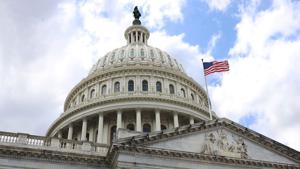
U of I scrutinized over perceived preference for international students
(The Center Square) – The University of Illinois faces scrutiny over its Spring 2026 Master’s in Accounting program, with the school saying it’s open to all students, though legal experts raise potential discrimination concerns.
Screenshots of the Master’s in Accounting program website suggested priority for international students, particularly from India. The university told The Center Square the program “is and has always been open to all students, both domestic and international.”
Brandon Smith, a partner at Holtzman Vogel and former chief of staff to the Tennessee Attorney General, said public universities cannot lawfully give admissions preference based on nationality.
“Universities, public or private, cannot restrict admissions, scholarship aid, or other forms of benefits based on race or ethnicity,” said Smith. “To do so is to violate core tenets of both state and federal civil rights laws.”
The university recently updated language on its website. Screenshots captured by web.archive.org suggest the spring program was open only to applicants with undergraduate degrees from non-U.S. institutions.
“Applicants are eligible to apply for either Spring or Summer 2026 if they meet the following criteria: 1) Hold or will complete an undergraduate accounting degree at a university outside of the United States 2) Have a certification from the Institute of Chartered Accountants of India,” the website previously stated. “All other applicants should apply for Summer 2026.”
In a statement to The Center Square, the university explained that most students begin the 12-month program in June, but students who earned accounting degrees outside the U.S. have the option to start in January. These students begin with electives in the spring semester and then complete the full program from January to December.
Addressing references to India, the university said the original webpage was intended to show options, not restrictions.
“The bullet points listed on the webpage were intended as an ‘or’ statement, not an ‘and’ statement,” the school said. “It applied to students certified in India or any student who earned an undergraduate degree outside the U.S. We have since clarified the language on our webpage.”
Smith said if the spring program was open only to applicants with undergraduate degrees from non-U.S. institutions, the program could face scrutiny under federal civil rights law.
“To the extent that the master’s program restricts admissions or participation based on race or national origin, they’re violating the law,” Smith said. “It doesn’t matter how well-intentioned a program is—if eligibility is restricted by race, ethnicity, or national origin, it’s unlawful.”
Reilly Stephens, senior counsel at the Liberty Justice Center, emphasized that because the University of Illinois is a taxpayer-funded institution, he said, it must follow constitutional and federal restrictions on discrimination.
“Public institutions, and the University of Illinois is a publicly funded institution, are subject to constitutional restraints on things like racial discrimination and affirmative action, and those things apply because of the Equal Protection Clause of the federal Constitution,” Riley said. “That doesn’t apply to a private university. The trick is that Title VI of the Civil Rights Act of 1964 also applies to institutions that take federal funds, so virtually every university in the country is bound by those same rules as a condition of receiving federal money.”
In Kleinschmit v. University of Illinois Chicago, Professor Stephen Kleinschmit alleges that the university terminated his contract in August 2023 after he raised concerns about its racially discriminatory hiring practices, violating his constitutional rights under the Equal Protection Clause and leading to a lawsuit filed by the Liberty Justice Center.
“This is a culture that’s rotten to the core with discrimination, bias, and ideological capture,” said Stephens.
Smith explained universities may recruit international students for tuition revenue, but “it’s illegal to grant benefits, including admissions, based on race or ethnicity.”
“What’s not normal, and what is, in fact, illegal, is providing any benefit, including admissions, program opportunities, or scholarships and financial aid, based on race or ethnicity. To do so is a violation of the law,” said Smith.
If a domestic applicant felt disadvantaged, Smith said they would have legal options.
“They could just file direct civil rights lawsuits against the university,” said Smith.
Latest News Stories
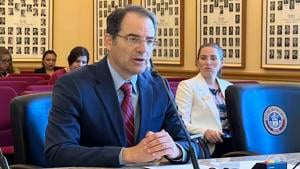
States sue over Victims of Crime Act grant funding

White House backs off hefty EU tariff threats, EU eliminates industrial tariffs

Home sales up 2% in July as prices stayed nearly flat
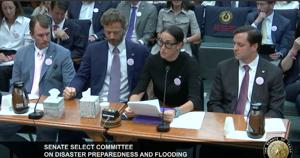
Parents who lost daughters at Camp Mystic: Their deaths were ‘100% preventable’

Illinois quick hits: COVID fraud indictments issued; man sentenced for mailing fentanyl

Trump defunds California sex ed program over ‘gender ideology’

WATCH: Illinois In Focus Daily | Thursday Aug. 21st, 2025
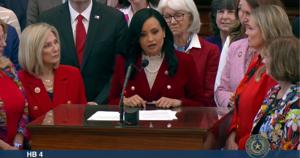
Texas House passes Congressional redistricting bill after absconding Dems return

Department of Education ends support for political activism
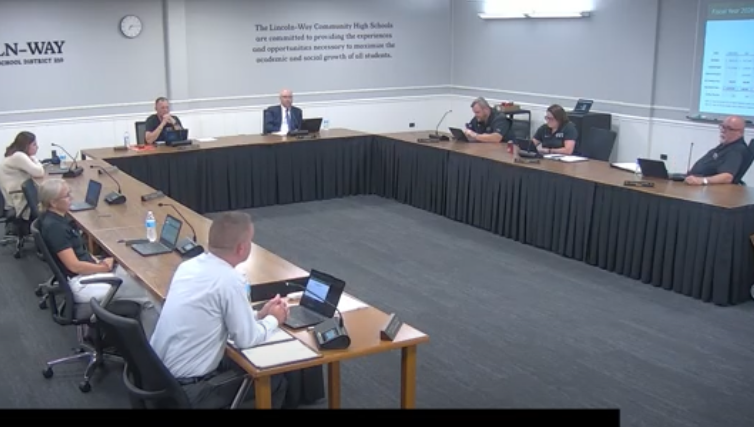
Lincoln-Way Board Reviews $162 Million Tentative Budget, Projects Deficit Due to Bus Purchase Timing

Illinois trucker warns foreign firms faking logs, dodging rules, risking safety
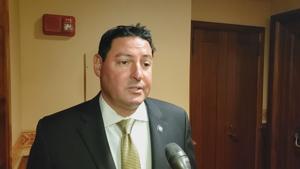
Illinois law mandates pharmacies to sell needles, sparking safety debate
